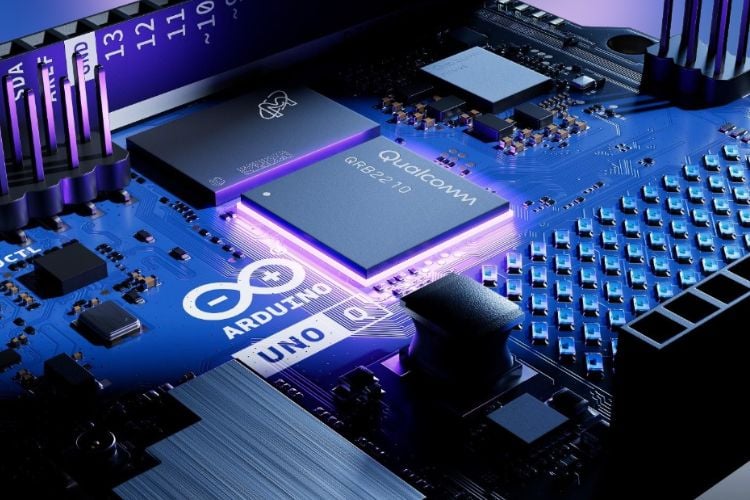
Qualcomm has announced an acquisition agreement with Arduino to equip developers with edge capabilities, pending regulatory approval. This is not an isolated move, given the company’s acquisition of Foundries.io and Edge Impulse. It’s a consolidation of multiple developer platforms under a single ecosystem that combines AI model development, OS infrastructure, and now the hardware base.
Synergy between Qualcomm’s technical power and Arduino’s accessibility is sure to foster advanced AI and IoT development. The newly launched Arduino UNO Q board is the first outcome of the integration. It combines AI-ready processing and real-time control, featuring a Qualcomm Dragonwing QRB2210 microprocessor and STM32U585 microcontroller. Staying compatible with the Arduino IDE and UNO ecosystem, this is the first Arduino board to support Arduino App Lab. “The launch of UNO Q is just the beginning — we’re excited to empower our global community with powerful tools that make AI development intuitive, scalable, and open to everyone,” said Fabio Violante, CEO of Arduino.
Even beyond acquisition, Arduino will operate as an open-source platform and retain its branding. There is no implication of exclusivity to Qualcomm either, as Arduino hardware will continue to support a wide range of microcontrollers and microprocessors. Nakul Duggal, Qualcomm’s Group General Manager for Automotive, Industrial, and Embedded IoT, said, “Arduino has built a vibrant global community of developers and creators. By combining their open-source ethos with Qualcomm Technologies’ portfolio of leading-edge products and technologies, we’re helping enable millions of developers to create intelligent solutions faster and more efficiently—including a path towards global commercialization by leveraging the scale of our ecosystem.”

